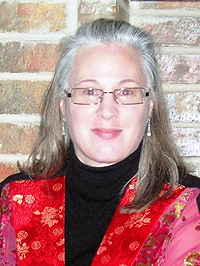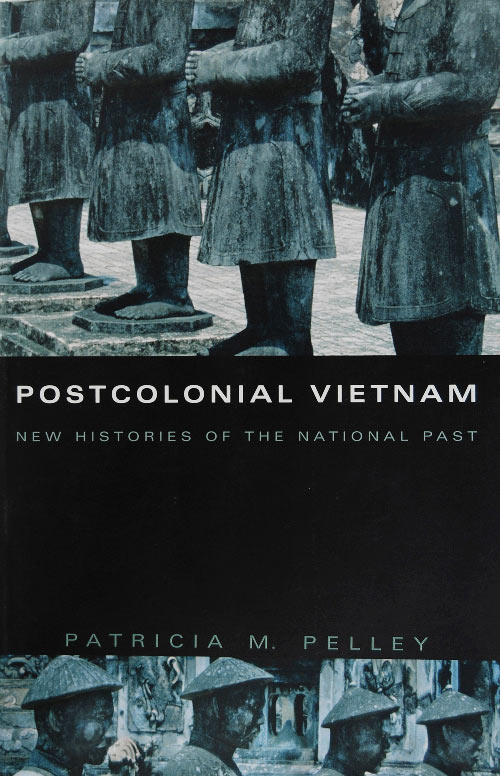Patricia Pelley
Email: Patricia.Pelley@ttu.edu
Ph.D., Cornell University
Patricia Pelley is completing a manuscript entitled “Jesus, Mary, and Marcel Văn in the Vietnamese Revolution.” The trajectory of this book extends from the sixteenth century to the present and examines the intersection of global Catholicism, French imperialism, and revolutionary forms of anti-colonial activism. The central figure is Gioakim Nguyễn Tân Văn (1928-1959), a third-generation Catholic and prolific writer whose work, all handwritten and in Vietnamese, has never been published. In this book, she explores his many autobiographical texts, his conversations with Jesus and Mary, his poetry and prose pieces, and his extensive correspondence with a wide range of interlocutors. Most critically, her book situates Brother Marcel Văn in the anti-colonial and revolutionary contexts that most profoundly shaped his life. Finally, her book examines the cause for his beatification as a martyr for the Christian faith. She conducted the research for this book in multiple archives in France and Vietnam.
Patricia Pelley teaches undergraduate and graduate courses in Asian and world histories. In fall 2023, her section of the Senior Seminar, the capstone course for history majors, focuses on the novel in history.

Select Publications
Postcolonial Vietnam: New Histories of the National Past
 New nations require new histories of their struggles for nationhood. Postcolonial
Vietnam takes us back to the 1950s to see how official Vietnamese historians and others
rethought what counted as history, what producing history entailed, and who should
be included as participants and agents in the story. Beginning with government-appointed
historians’ first publications in 1954 and following their efforts over the next thirty
years, Patricia M. Pelley surveys this daunting process and, in doing so, opens a
wide window on the historical forces and tensions that have gone into shaping the
new nation of Vietnam.
New nations require new histories of their struggles for nationhood. Postcolonial
Vietnam takes us back to the 1950s to see how official Vietnamese historians and others
rethought what counted as history, what producing history entailed, and who should
be included as participants and agents in the story. Beginning with government-appointed
historians’ first publications in 1954 and following their efforts over the next thirty
years, Patricia M. Pelley surveys this daunting process and, in doing so, opens a
wide window on the historical forces and tensions that have gone into shaping the
new nation of Vietnam.
Although she considers a variety of sources—government directives, census reports, statistics, poetry, civic festivities, ethnographies, and museum displays—Pelley focuses primarily on the work of official historians in Hanoi who argued about and tried to stabilize the meaning of topics ranging from prehistory to the Vietnam War. She looks at their strained and idiosyncratic attempts to plot the Vietnamese past according to Marxist and Stalinist paradigms and their ultimate abandonment of such models. She explores their struggle to redefine Vietnam in multiethnic terms and to normalize the idea of the family-state. Centering on the conversation that began in 1954 among historians in North Vietnam, her work identifies a threefold process of creating the new history: constituting historiographical issues, resolving problems of interpretation and narration, and conventionalizing various elements of the national narrative. As she tracks the processes that shaped the history of postcolonial Vietnam, Pelley dismantles numerous clichés of contemporary Vietnamese history and helps us to understand why and how its history-writing evolved.
Learn more at Amazon.com.
Department of History
-
Address
Texas Tech University, Box 41013, 3001 15th Street, Humanities (formerly English/Philosophy) 165, Lubbock, TX 79409 -
Phone
806.742.3744 | Fax: 806.742.1060 -
Email
info.history@ttu.edu
